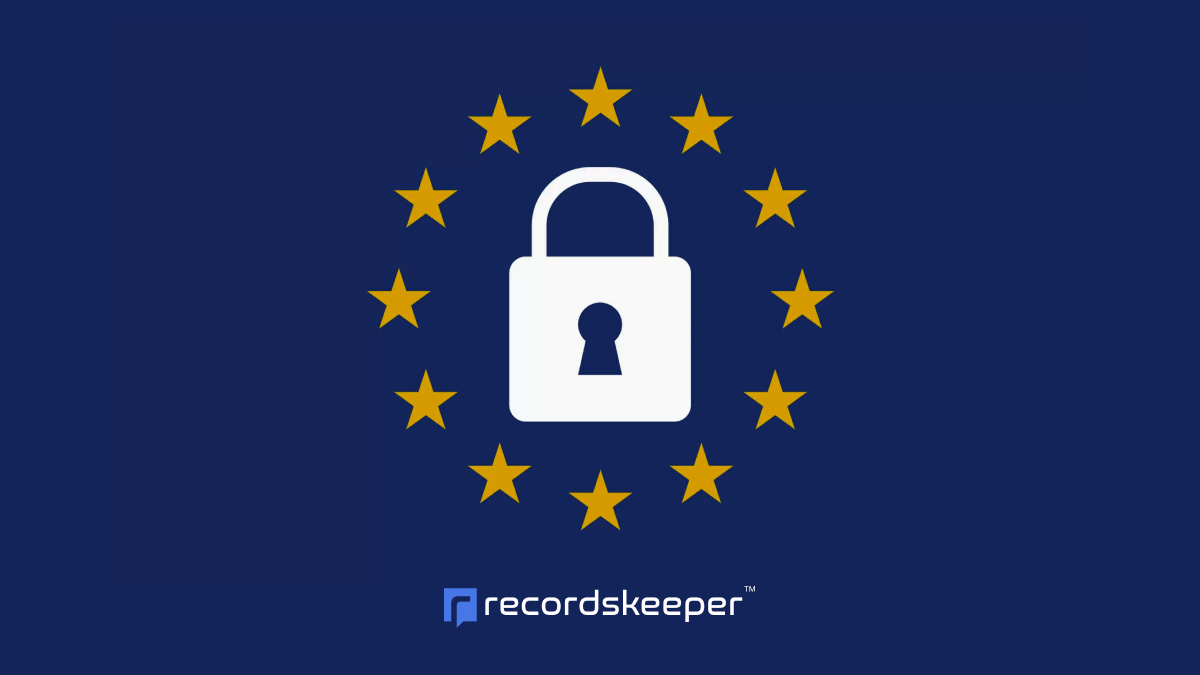- Compliance Management
- August 7, 2024
Legal Compliance in Digital Record Keeping: What You Need to Know

Understanding Legal Compliance in the Digital Age of Record Keeping
In today’s fast-paced digital landscape, understanding legal compliance for managing digital records is no longer just a recommendation—it’s a necessity. In my journey as the founder of RecordsKeeper.AI, I’ve encountered various challenges organizations face in maintaining legal compliance. Navigating this terrain can be daunting but armed with the right knowledge; you can transform compliance from a burden into a strategic asset.
The Essence of Legal Compliance in Digital Record Keeping
Legal compliance in digital record keeping refers to adhering to protocols and regulations that govern how records are stored, accessed, and maintained. These laws ensure that sensitive information remains protected and that organizations handle records transparently, maintaining public trust and avoiding hefty penalties. Whether it’s GDPR, HIPAA, or SOX, compliance standards are designed to safeguard user privacy and uphold data integrity.
Why It’s Crucial
Failing to adhere to legal compliance can have severe repercussions. This includes legal penalties, loss of reputation, and even loss of business. Understanding the intricacies of compliance helps organizations better prepare for audits and legal inspections while enhancing overall operational efficiency.
Key Compliance Requirements
One crucial aspect of legal compliance in digital record keeping is understanding the specific requirements that apply to your industry and jurisdiction. Here are some fundamental components:
- Data Privacy: At the heart of compliance is ensuring that user data is protected from unauthorized access, tampering, or loss. Regulations like GDPR and CCPA offer a comprehensive framework to guide businesses in protecting consumer privacy.
- Accessibility: Ensuring records are easily accessible for authorized personnel only. This involves employing robust access control measures and maintaining accurate logs of data access events.
- Secure Storage: Digital records should reside in secure environments shielded from breaches and cyber threats. Advanced encryption and regular security updates are essential.
- Records Management Protocols: This involves meticulous classification, storage, and tagging of records to ensure they meet regulatory standards for record retention and destruction.
- Audit Trails: Maintaining a detailed audit trail for all record-related activities is not just a compliance measure but a cornerstone of accountability and transparency.
Transforming Compliance into a Strategic Advantage
Compliance doesn’t have to be a mere checkbox activity. By integrating compliance practices into the core operations, organizations can derive significant business value.
Compliance Automation Through AI
Using AI, compliance tasks can be automated, ensuring that regulatory standards are consistently met. RecordsKeeper.AI, for example, utilizes AI-driven functionalities that automatically classify and tag records. This minimizes human error and accelerates compliance workflows.
Blockchain: The Compliance Ally
Blockchain technology offers an immutable way to ensure data integrity. With a decentralized ledger, organizations can provide tamper-proof records, enhancing credibility during regulatory audits.
Embracing Technology to Bolster Compliance
The intersection of technology and compliance is a crucial area of focus. Embracing modern technologies can significantly enhance compliance processes.
Secure Data Storage with Blockchain
Integration of blockchain with digital record-keeping can provide a layer of security that traditional systems often lack. This ensures that records are immutable and verifiable, making unauthorized changes easily detectable.
Efficient Policy Management
Compliance is continuous, not a one-time event. Efficient policy management helps organizations adapt to new regulations without significant workflow disruptions. Automated policy management systems can enforce data retention and deletion policies, keeping the organization aligned with evolving compliance norms.
Steps to Achieve Compliance Excellence
Achieving compliance excellence requires a concerted effort across the organizational structure. Here are some straightforward steps:
- Stay Informed: Regularly update your knowledge about new compliance regulations affecting your industry.
- Invest in Technology: Utilize platforms like RecordsKeeper.AI that provide automated compliance features, ensuring adherence to regulations seamlessly.
- Conduct Regular Audits: Routine audits help identify areas of non-compliance, allowing for timely corrective actions.
- Train Your Team: Ensure that all employees are well-versed in compliance standards and the importance of maintaining these practices.
- Partner with Experts: Engage with legal and compliance experts to garner deep insights and guidance in maintaining stringent compliance.
Conclusion: Turning Compliance into Growth
Ensuring legal compliance in digital record keeping isn’t just about meeting regulatory demands; it’s about fostering an environment of trust and efficiency. As businesses navigate the digital age, leveraging technology to simplify compliance processes can unlock new opportunities for growth and innovation. With platforms like RecordsKeeper.AI at your side, transforming compliance from a challenge into a strategic advantage becomes not just feasible but exciting.
I invite you to explore RecordsKeeper.AI further and connect with me to delve deeper into how legal compliance can be seamlessly integrated into business operations. Let’s turn compliance into a compelling narrative of trust and success.
Toshendra Sharma is the visionary founder and CEO of RecordsKeeper.AI, spearheading the fusion of AI and blockchain to redefine enterprise record management. With a groundbreaking approach to solving complex business challenges, Toshendra combines deep expertise in blockchain and artificial intelligence with an acute understanding of enterprise compliance and security needs.
Related Posts

Achieving Perfect GDPR Compliance: A Financial Services Success Story
European Financial Trust (EFT), a global financial services company managing over $50 billion in assets, faced mounting pressure to ensure GDPR compliance across its vast network of client data and transactions. With operations in 15…
- January 15, 2025
Archives
- January 2025
- December 2024
- November 2024
- October 2024
- September 2024
- August 2024
- July 2024
- June 2024
- May 2024
- April 2024
- March 2024
- February 2024
- January 2024
- December 2023
- November 2023
- October 2023
- September 2023
- August 2023
- July 2023
- June 2023
- May 2023
- April 2023
- March 2023
- February 2023
- January 2023
- December 2022
- November 2022
- October 2022
- September 2022
Want to get more content like this?
Signup to directly get this type of content to your inbox!!
Latest Post
Document Control for Equipment Maintenance
- January 20, 2025
Managing Records for Multiple Clients
- January 19, 2025
Handling Conference Documentation
- January 18, 2025
Setting Up Department Record Reviews
- January 17, 2025





